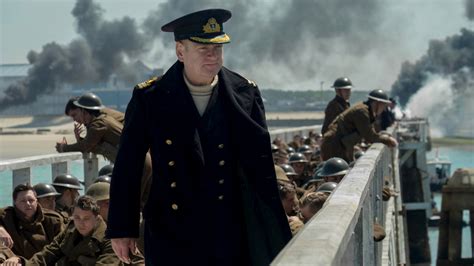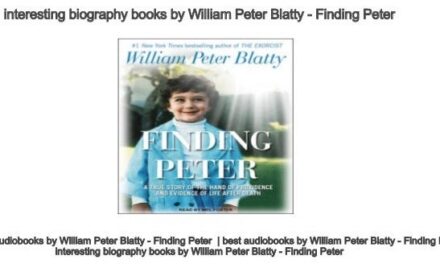Deal Hudson has already written on Christopher Nolan’s film, Dunkirk, for The Christian Review, so I’ll begin by saying that I am in almost complete agreement with his judgment on the film. It is a sober and, as Deal puts it, “un-dramatic” rendering of the famous events on the French coast in 1940. If you really want to imagine how important Nolan’s decision to eschew melodrama was, consider what the film might have been with Peter Jackson in the director’s chair.
Although Dunkirk has garnered mostly favorable reviews, there have been naysayers in some surprising places. Kyle Smith of National Review Online declared Nolan’s effort “gripping” but missed the character development that we expect of World War II films, even the familiar cardboard characters who utter “inspiring” clichés.
John Podhoretz in The Weekly Standard, like Smith an admirer of Nolan’s work, found Dunkirk devoid of perspective, chiefly the context of what was at stake if the British Expeditionary Force surrendered. All told, Podhoretz noted, Nolan “proved unable to do justice to the cause” for which the Allies fought.
I viewed Dunkirk twice in 48 hours—a rewarding experience on both occasions. Kyle Smith’s criticism is correct for the most part: no cries of “Over the top, men!” color the spare dialogue. Indeed, one might accuse Nolan of being overly subtle in presenting the ten or so main characters as men without homes, sweethearts, or parents. But a closer look at the action reveals hints of family and inner feeling that establish motives and loyalties. Barry Keoghan’s “George” appears to jump aboard the boat departing for Dunkirk on impulse; later we find that he’s a washout at school, a disappointment to his father, who yearns to do something that will make his family proud. Mark Rylance’s “Mr. Dawson” tells Cillian Murphy’s shell-shocked soldier, “We have a job to do”; later, his son tells “Collins,” the rescued RAF pilot (Jack Lowden), that his older brother and Dawson’s other son was a Hurricane pilot killed in the opening three weeks of the war.
“Commander Bolton,” played with admirable reserve by Kenneth Branagh, shouts out questions to one of the crew of a rescue boat about things in “Deal,” the town in Kent, where, we gather, his family lives. These brief moments don’t take us into the villages, the pubs, and homes of the Britain they desperately want to reach, but they tell us enough without distracting the audience from the truly remarkable event that is the subject of Nolan’s film, the miraculous evacuation of the British army.
Podhoretz’s complaint also seems unjustified. The context of the impending destruction of the B.E.F. is, to say the least, adequately stressed in the fear and near hopelessness of the men on the beach, as well as in the haste Mr. Dawson and others in the little armada make in their urgent quest to evacuate the men on time. Maybe Podhoretz expected Nolan to add a cinematic preface with, say, newsreels of the Wehrmacht thundering through Belgium and France.
If the criticism hints at a suspicion that today’s audiences are too historically ignorant to know what the context of the Dunkirk was, I doubt any references to the events of the time would help much. Those who know nothing of Dunkirk would be equally clueless about the Maginot line and the Anschluss, as well as major figures of the time (Churchill, Chamberlain, Pétain).
But think about it: How many noteworthy WWII films really do establish the broader context much more than Nolan’s Dunkirk? The excellent film Battleground (1949), about the plight of the 101st Airborne Division at the Battle of the Bulge, doesn’t. John Ford’s magisterial They Were Expendable (1945) fixes its action exclusively in the Philippines and on the P.T. boats that played such an important part in the Pacific war. The Longest Day (1962), possibly the most thoroughly panoramic view of any WWII battle, does little more than detail the events of each phase of the Normandy invasion. Even Saving Private Ryan (1998), however much it delves into the individual lives of the principal characters, assumes more than shows the larger reasons why they are risking their lives.
And Dunkirk, with its two press conferences, does little more to show the “big picture” than the leaflets floating down from the skies show us in Dunkirk. Confused? That’s because Nolan’s film is the second major film of the events of the famous evacuation. The first, with the same title, was made in 1958. Directed by Leslie Norman and starring John Mills (“Corporal ‘Tubby’ Binns”), Richard Attenborough (“John Holden”), and Bernard Lee (“Charles Foreman), the earlier version presents a story that is memorable largely for doing exactly what Nolan elected to do, in chronicling the plight of the B.E.F. on the beach and its rescue by brave civilians from encirclement and destruction.
Dunkirk I (Norman) does add what Kyle Smith missed in Dunkirk II (Nolan); that is, it digs a little into the lives of the main characters—but only briefly. Tubby’s company, which, as ranking NCO, he commands after the death of his superior, has to work its way to the beach and then suffer the bombing and strafing that made Dunkirk such a Hell for those stranded. Holden is a coward who, as the owner of a small textile plant, has been excused active service, yet he feels guilty for the dodge and, despite his child-wife’s objections, offers himself and his boat for the rescue attempt. Foreman, a man who, from the press conferences, appears a journalist with a comfortable upper-middle-class home and a lovely wife, knows what’s at stake and dutifully volunteers.
These details are in part what Kyle Smith missed in Dunkirk II, but I cannot say they add much to the experience; the clichés (happily few), which Smith believes might have aided the viewer in warming up to Dunkirk II, appear, as clichés do by definition, worn and predictable in Dunkirk I.
That said, Dunkirk I does not romanticize the event any more than Nolan’s version. Once it focuses on the beaches and the rescuing boats, it maintains the feel of the real thing and is worth watching. If I have a major complaint, it is Malcolm Arnold’s music, which sounds altogether too much like his 1957 score for The Bridge on the River Kwai. And context? Probably not enough to satisfy John Podhoretz.
Dunkirk I is a good film but not a great one. With Deal, I’m convinced Nolan’s Dunkirk will grow in stature as the years pass. It’s not so much a film about courage as about courage’s twin brother: endurance. That quality may be underrated, but it served Britain well in 1940 and beyond.
And I ought to add, as I watched the concluding scenes of the film, quite apart from Nolan’s intentions, I couldn’t help reflecting on Britain’s and Europe’s plight today as they face or ignore (as so many did in the thirties), the threat of a new totalitarian power, Islam. Will they open their eyes to fight and endure? Or, complacent to the last, will they suffer defeat and be forced to depend, as Churchill speculated in his famous speech, on the New World to rescue the Old? Nolan’s Dunkirk may be more than history; it may be prophecy.















Couldn’t agree more. I have a DVD of the 1958 film. In contrast to the Nolan film the 1958 version has great scale, there are literally what appears to be thousands of extras on the beaches. The political situation is explained. The army and navy chiefs are given room. Mills as always manages to portray a simple, honest man. Bernard Lee is the conscious of the film, but equally Attenborough shows the dilemmas not only of being in a reserved occupation but as the father of a new baby. There’s so much detail, Lord Haw haw is heard on the radio and one of the characters suggests that he might be right. The ending of the Nolan film is disgraceful and a complete invention, much like in ‘darkest Hour’ which portrays the aristocrat Churchill on the tube, what nonsense